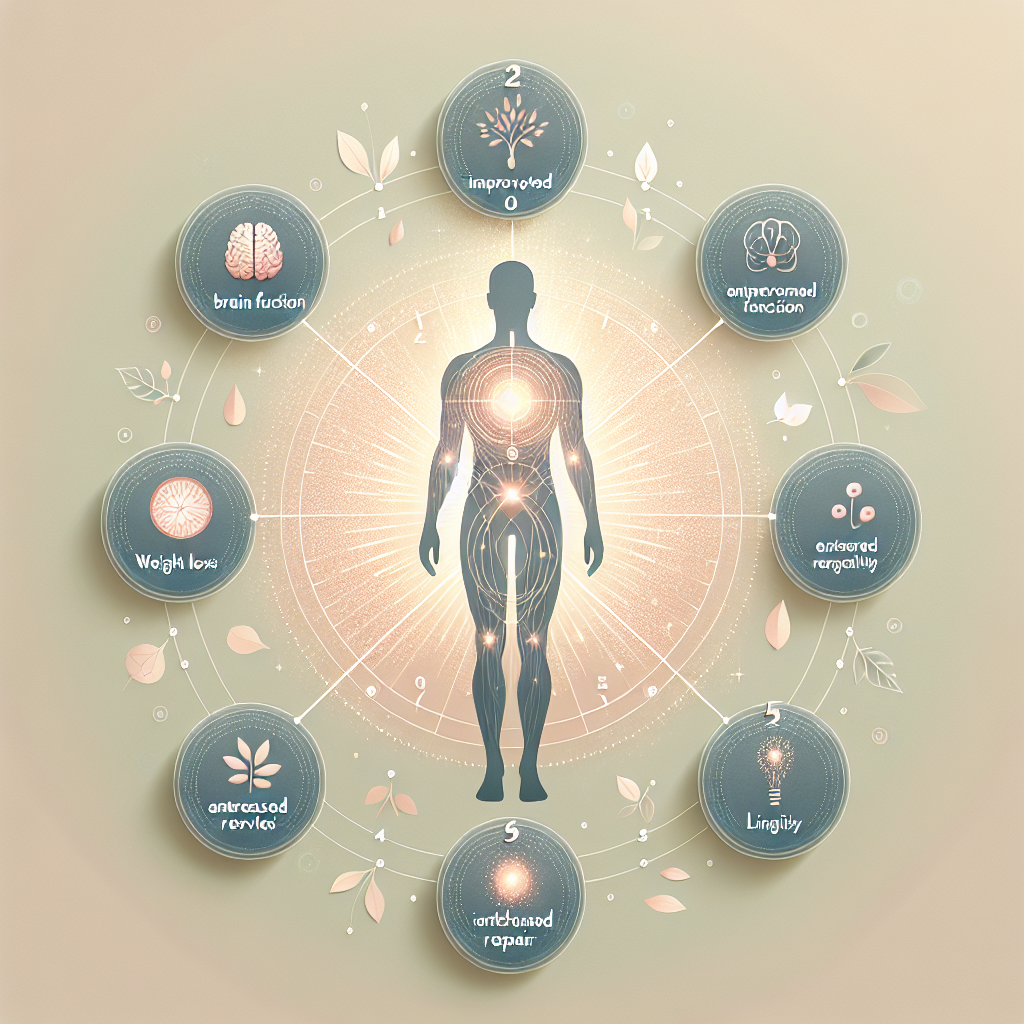### Five Evidence-Based Benefits of Intermittent Fasting
People across the globe have turned to a variety of eating regimens such as keto and veganism to keep their health in check. Among these, intermittent fasting continues to trend in the health and wellness sector. It’s not only being adopted for weight loss but for a range of other health benefits too. Today, we’ll dive straight into the science-backed benefits of intermittent fasting.
**1. It May Aid in Weight Loss and Belly Fat Reduction**: Intermittent fasting simply changes your eating pattern. It doesn’t dictate what to eat, but rather when to eat. The two most popular methods, 16/8 method (fasting for 16 hours and eating within 8 hours) and the 5:2 diet (consuming 500-600 calories for 2 days a week), have shown to assist in weight loss [^1^]. By eating fewer meals and reducing insulin levels, you end up with less belly fat and a faster metabolic rate, leading to weight loss [^2^].
**2. It Boosts Your Metabolism**: Intermittent fasting can safeguard you against metabolic dysfunction. It aids in maintaining insulin resistance levels, reduces insulin levels, and increases growth hormone secretion – all of which help in fat usage and weight loss [^3^].
**3. It Enhances Heart Health**: Heart diseases record the highest number of global fatalities. Some risk factors include high blood pressure, cholesterol levels, smoking, diabetes, and obesity. Through triggering weight loss and reducing these risk factors, intermittent fasting can indirectly help maintain heart health [^4^].
**4. It Promotes Brain Health**: Fasting regimens stimulate brain hormones, aiding the growth of new nerve cells. The reduction in insulin and inflammation levels might also play a role in preventing diseases like Alzheimer’s [^5^].
**5. It Aids In Longevity**: By influencing metabolic, heart, and brain health, intermittent fasting may enhance lifespan. Studies on rats subjected to intermittent fasting lived up to 83% longer than those who weren’t [^6^].
In summary, intermittent fasting isn’t just a weight-loss fad but a lifestyle change with myriad potential health benefits. However, these benefits can vary based on various individual health factors, so it is advised to speak with a healthcare professional before beginning this diet regime.
Regardless, the science-backed evidence for intermittent fasting is certainly food for thought!
[^1^]: [Link to source: Intermittent fasting for weight loss](https://www.ncbi.nlm.nih.gov/pmc/articles/PMC4516560/)
[^2^]: [Link to source: Intermittent fasting, a possible priming tool for host defense against SARS-CoV-2 infection Ph.D.](https://www.ncbi.nlm.nih.gov/pmc/articles/PMC7284805/)
[^3^]: [Link to source: Intermittent fasting enhances insulin sensitivity](https://www.ncbi.nlm.nih.gov/pmc/articles/PMC7021351/)
[^4^]: [Link to source: Effects of intermittent fasting on health, aging, and disease](https://www.nejm.org/doi/full/10.1056/NEJMra1905136)
[^5^]: [Link to source: Intermittent fasting and human metabolic health](https://www.ncbi.nlm.nih.gov/pmc/articles/PMC4516560/)
[^6^]: [Link to source: Dietary restriction and lifespan in rats](https://onlinelibrary.wiley.com/doi/abs/10.1196/annals.1431.005)


